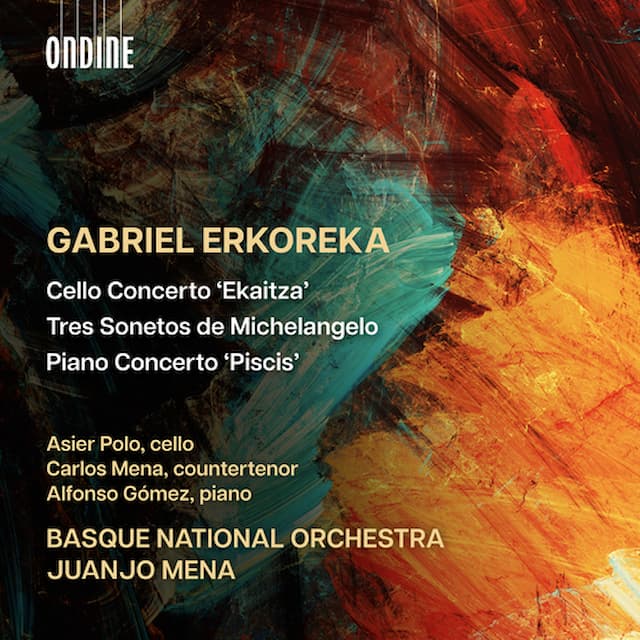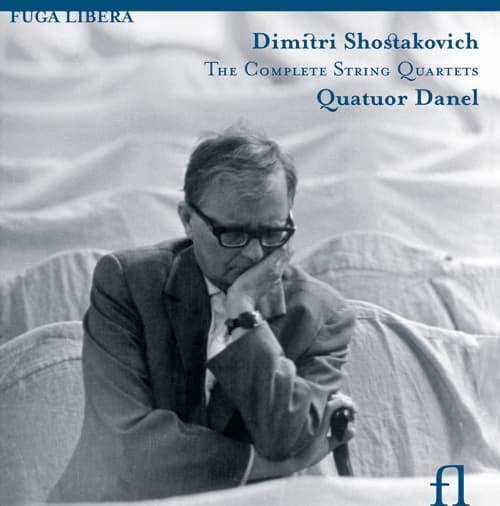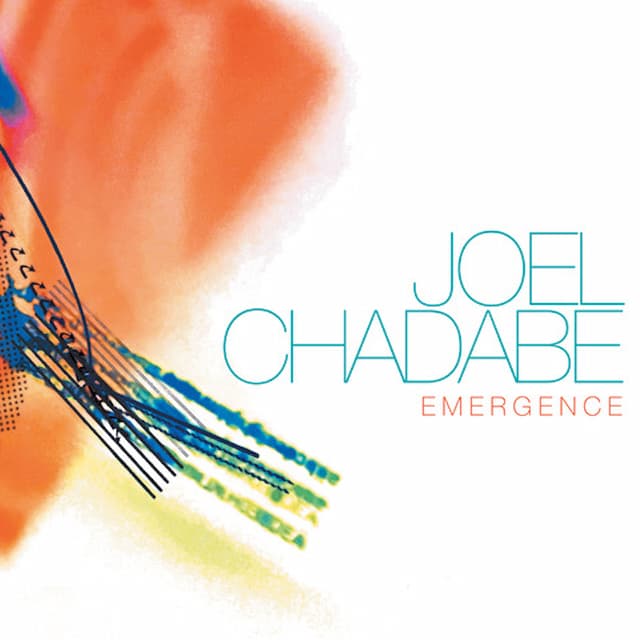You might wonder what Rachmaninoff wrote for the Double Bass. He didn’t! But his gorgeous melodies lend themselves to soulful interpretations and certainly the album Elégie: Celebrating 150 Years of Rachmaninoff on the Double Bass is poignant and should appeal to lovers of Rachmaninoff’s music.
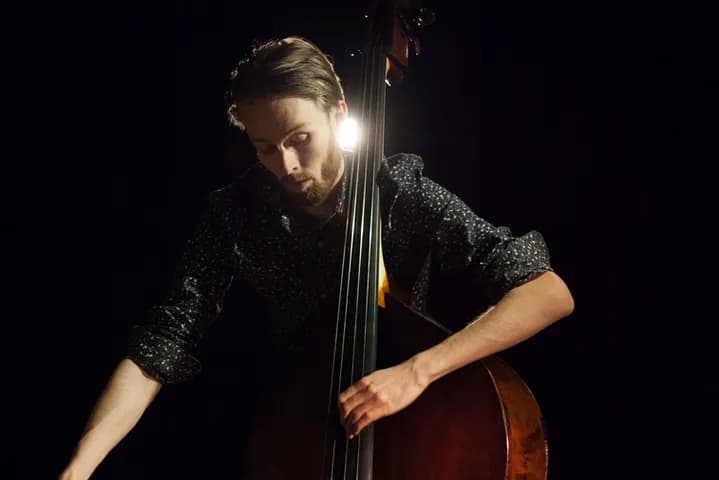
Adrian Eriksson
Classical double bassist Adrian Eriksson was born in 1995 in Gothenburg, Sweden, and he began to play the double bass at the age of nine. A versatile artist who has played in orchestras such as the Gustav Mahler Jugendorchester, Verbier Festival Orchestra, and Mahler Chamber Orchestra, he seeks new ways of expanding the double bass repertoire. He has also composed original works for his instrument including a Sonata for Solo Bass dedicated to the victims of the covid-19 pandemic. Eriksson explores the depths of Rachmaninoff’s music in his first solo album with pianist Henrik Kilhamn. They are a convincing pair. The two feature more rarely heard compositions of Rachmaninoff combined with well-known pieces, but all are melodious that are beautiful in the deeper voice of the Bass. Twelve lovelies are featured.
Adrian Eriksson: Solo Sonata for Double Bass
The first selection Elégie Op 3. No. 1, or elegy, a term meaning a mournful lament, features some of the higher bass register accompanied by gently undulating and otherworldly arpeggios in the piano. This piece showcases Rachmaninoff’s uncanny ability to write striking melodies. Eriksson easily traverses the entire range of the bass.
Rachmaninoff: Elégie Op. 3 No. 1
Rachmaninoff composed his 24 preludes for piano in all keys. Eriksson features two of them. The familiar and famous Prelude in C-Sharp Minor Op. 3 No. 2 opens with the chords in the piano with which we are quite familiar. But after the opening phrase, the bass enters with the melody. It’s a very interesting transcription that doesn’t take away from the drama and power of the piece—it is still virtuosic on the piano.
Prelude in D Major, Op. 23 No. 4 from 1901 is tender and dreamy. The artists’ performance of the Prelude is a lovely take on this work.
Several very short bonbons form the middle of this disc. Rachmaninoff composed many Salon pieces and over 80 songs. I must confess I’ve never heard of this exquisite little ode How Fair This Spot Op. 21, No. 7. It is played with utter tenderness and delicacy. In just under two minutes, we are swept to dreamy places. It is quite beautiful.
Melody Op. 21 No. 9, Lied in F Minor and In the Silence of the Night Op.4 No. 3; Are also quite short, yet they are charming, expressive, and atmospheric. The performers capture the ambiance perfectly.
Rachmaninoff: Melody Op. 21 No. 9
The quite famous and beautiful Vocalise Op. 34 No. 14 is played on the violin and the cello. I’ve certainly performed the work often, so why not play it on the bass? In fact, Rachmaninoff had a close relationship with fellow émigré, the outstanding bass virtuoso and conductor Serge Koussevitzky, who became the conductor of the Boston Symphony. Koussevitzky, a champion of contemporary music, published some of Rachmaninoff’s music, and he performed the Vocalise on the bass in 1915. The sound quality on this album is evocative and the intonation impeccable.
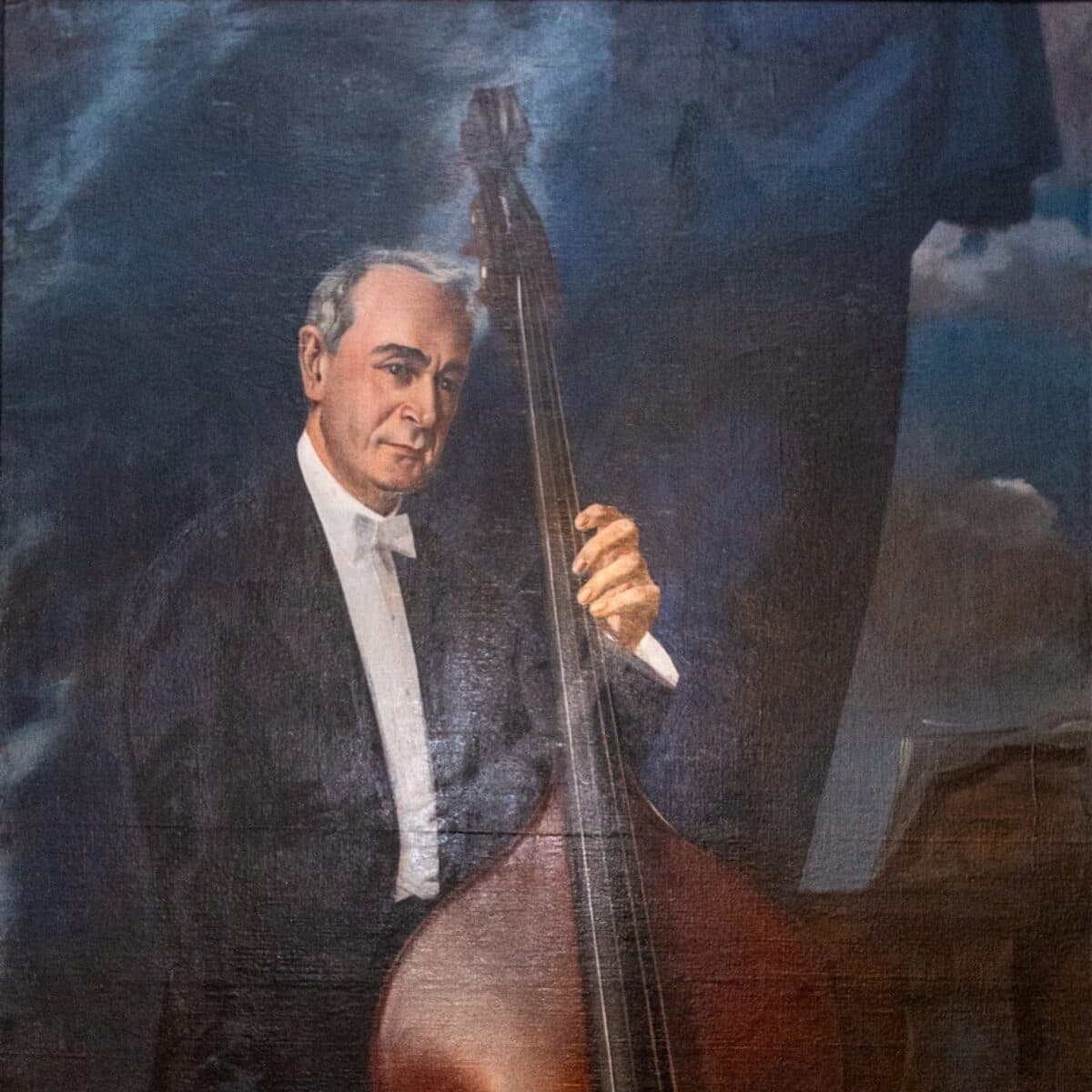
Serge Koussevitzky
Painting by Basil Schoukhaeff, Paris, 1934
Photograph of painting by Robert Torres
Speaking of the cello, the Vocalise is followed by the dramatic third movement of Rachmaninoff’s Sonata for Cello and Piano in G Minor Op. 19 in its original form. Rachmaninoff only wrote three sonatas, the cello sonata and two sonatas for piano. Dedicated to the cellist Anatoly Brandukov and premiered with the composer at the piano, the middle movement of the sonata is lyrical and passionate. Bass players frequently do play cello works and this one lends itself to the instrument, as the melancholy melodies are written in the lower range of the cello. Eriksson plays with full sonorities and richness. Although it is performed in the written cello register, the bass takes on different qualities than a cello—throatier, denser, and darker in sound—which lends itself to a mood that is heartfelt while quite somber.
The album is filled out by two larger works for three players. With violinist Danial Shariati, “Pregheira” (prayer) arranged by the violinist Fritz Kreisler and Erkisson is from the Adagio movement of the Piano Concerto No. 2 Op. 18 in C minor. Dedicated to Nikolai Dahl, the neurologist who helped Rachmaninoff out of a deep depression after the disastrous reception of his first symphony, the piece is arguably one of Rachmaninoff’s most beloved compositions. Here, the opening melody is played on the bass with grace and elegance, and then later, the two string players play the melody together as they build to the climax. It rises higher into the upper bass registers in places, which adds ardent suspense.
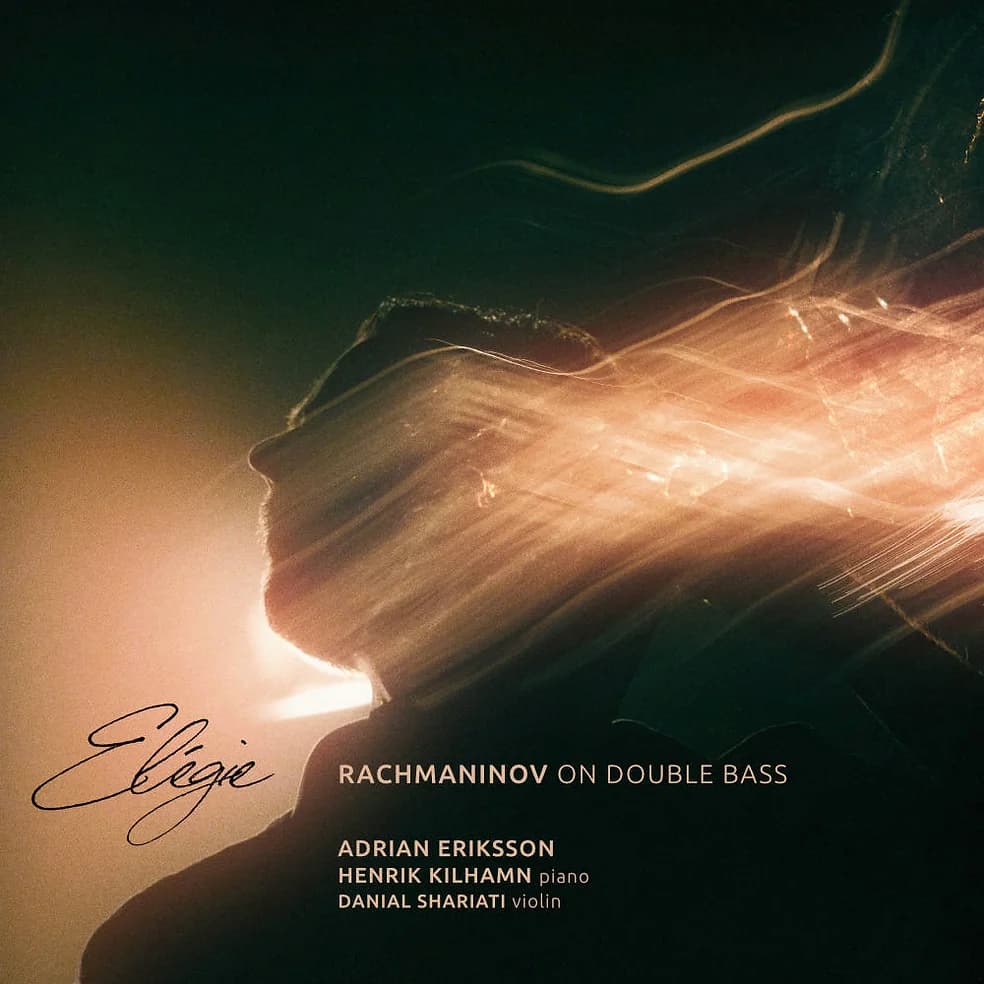
Elégie: Rachmaninov on Double Bass
The final number, and the most substantial in length at a little over 14 minutes, is one of the two trios Rachmaninoff wrote for piano and strings—the Trio elégiaque No. 1 in G Minor from 1891 during Rachmaninoff’s last year at the Moscow Conservatory, which he entered at age 12. He wrote the piece in just a few days, but it was not published until 1947, after the composer’s death.
In one movement it begins delicately with a repeated figure in the strings, the gentle brush strokes an accompaniment to the lovely melody in the piano. During the haunting lyricism of the movement, the bass and the violin trade melodic statements until they join forces in octaves. The tempos are slightly slower than I’ve heard, and I felt the sonority of the bass is less successful in this piece, but the movement is full of virtuosic piano writing admirably played by Henrik Kilhamn. The movement ends with a dirge-like, somber, and heartbreaking sigh. Lovers of Rachmaninoff will enjoy this recently released disc.
For more of the best in classical music, sign up for our E-Newsletter

